Shodan Stories Day 34: Listening to La Merde in Bonneuil-sur-marne, Logitech Servers, the Squeezebox, and Becoming the Ghost in the Wifi Connected Radio
As many of my days now start, I began my morning by looking through the recent searches on Shodan. I found one for Logitech devices that looked kind of interesting and dove in.
Logitech Media Server on 82.64.23.201
I no longer remember why I picked this particular device since I did my searching in the morning and am writing at night. I think I was impressed by the number of ports it had open. Maybe I was interested because it is in a Paris suburb. Shodan indicated that it had a Logitech device running a web server on port 9000, but had several other ports open with different types of services.
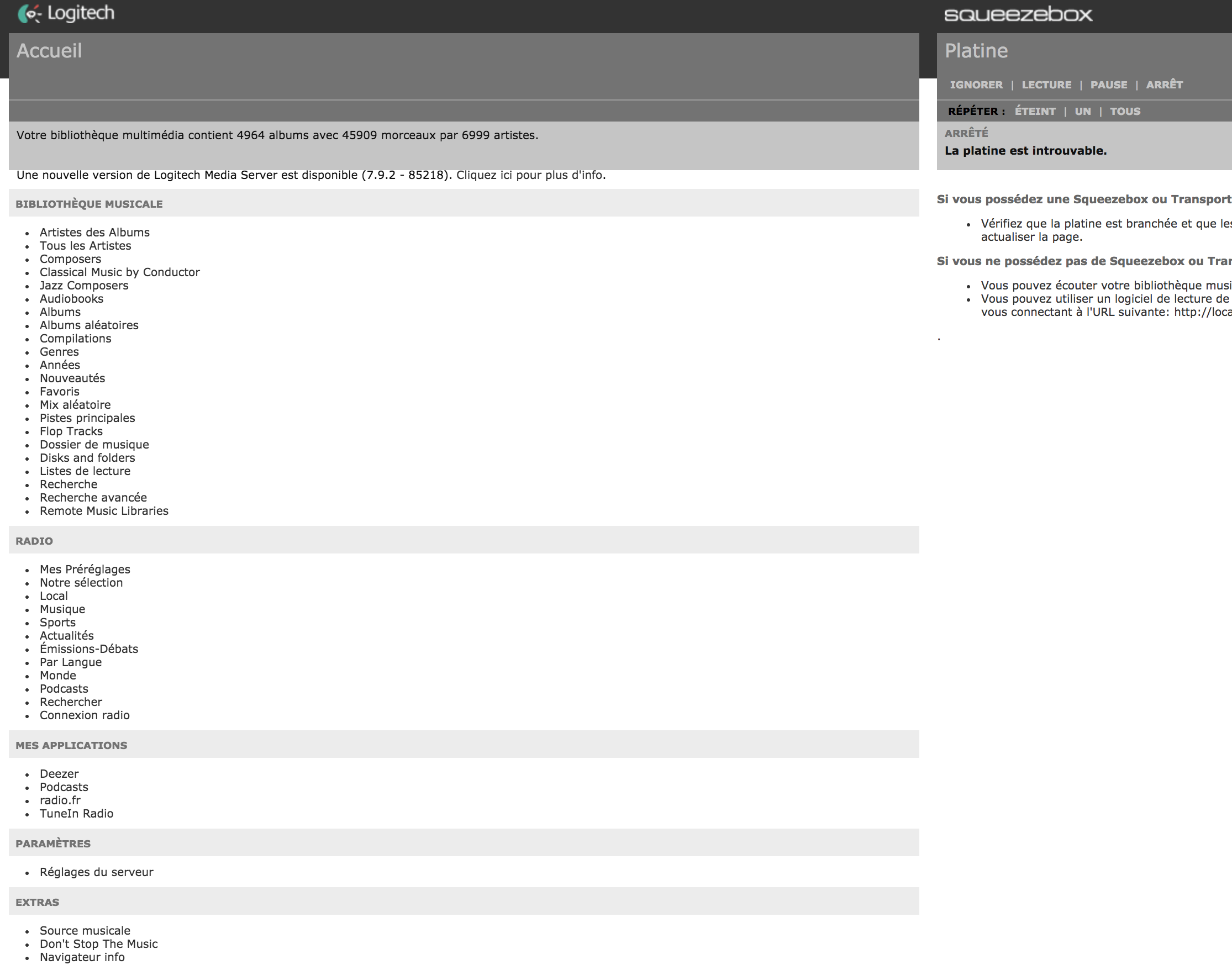 I opened up port 9000 in my browser and gave myself a couple of seconds to figure out what I was seeing. Clearly it was a media server of some kind. After poking around a bit I realized that it was just for audio! Phew no more porn.
I opened up port 9000 in my browser and gave myself a couple of seconds to figure out what I was seeing. Clearly it was a media server of some kind. After poking around a bit I realized that it was just for audio! Phew no more porn.
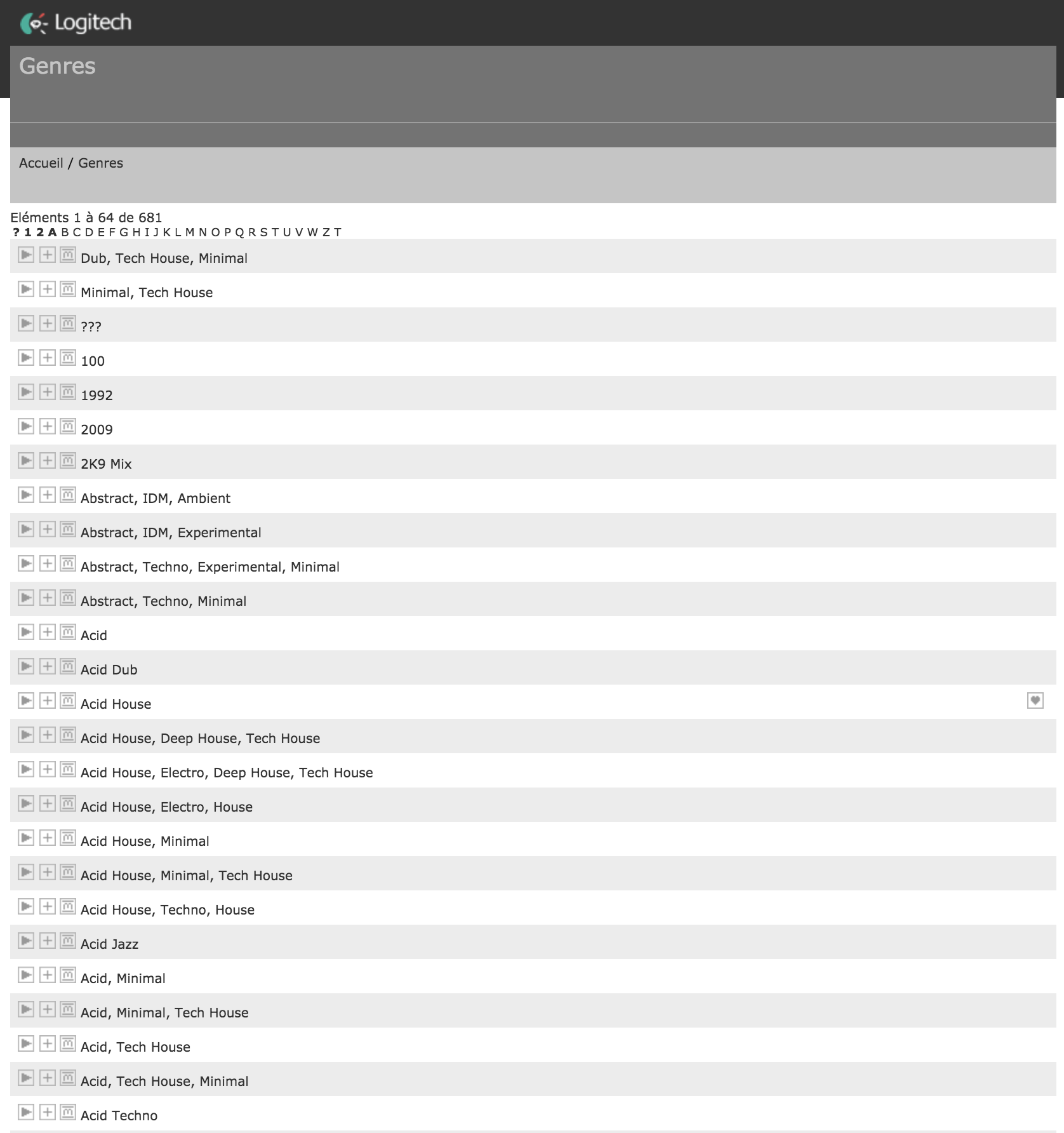 The owner had about 45000 tracks on the server, with all the usual genres. I think I had about that many back at the height of my torrenting teen years.
The owner had about 45000 tracks on the server, with all the usual genres. I think I had about that many back at the height of my torrenting teen years.
 I found that I could download any of the mp3s, but couldn’t steam them even though there were little “play” buttons next to all of them. I downloaded this album by a bizarre Fench comedy musician Didier Super. It was a cover album of French pop classics. It was really bad. Reading about it I found that he just made it to fulfill a four album contract, which might explain the bad music and pretty gross cover art.
I found that I could download any of the mp3s, but couldn’t steam them even though there were little “play” buttons next to all of them. I downloaded this album by a bizarre Fench comedy musician Didier Super. It was a cover album of French pop classics. It was really bad. Reading about it I found that he just made it to fulfill a four album contract, which might explain the bad music and pretty gross cover art.
I decided to Google the big word in the upper right corner, “Squeezebox”.
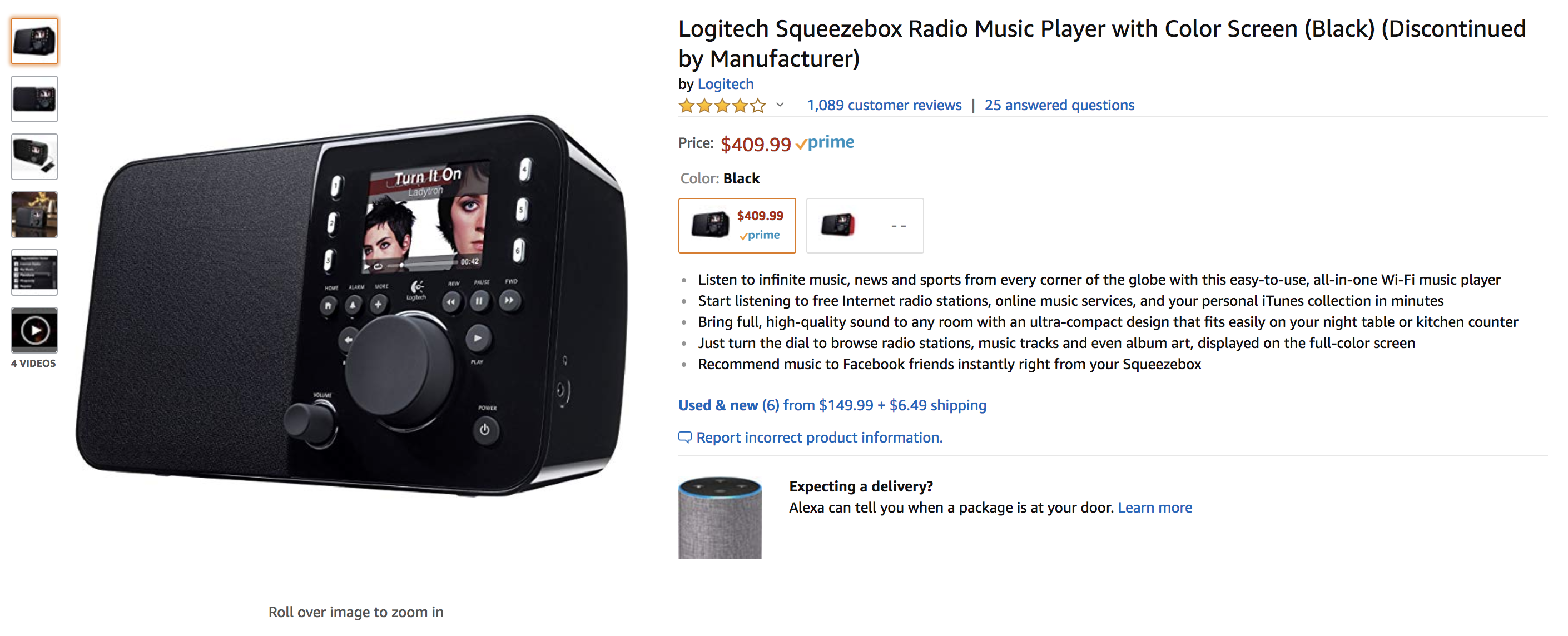 Uh oh! Had I just been playing tracks on someone’s Wifi radio?? What time was it there? Breathing a sigh of relief as I realized it was in the middle of the day - hopefully the owner was out. If an internet-connected radio starts randomly playing tracks in an empty apartment does it make a sound?
Uh oh! Had I just been playing tracks on someone’s Wifi radio?? What time was it there? Breathing a sigh of relief as I realized it was in the middle of the day - hopefully the owner was out. If an internet-connected radio starts randomly playing tracks in an empty apartment does it make a sound?
Googling a little further I found a guide for how to set up port forwarding for these devices although it strongly advised not to.
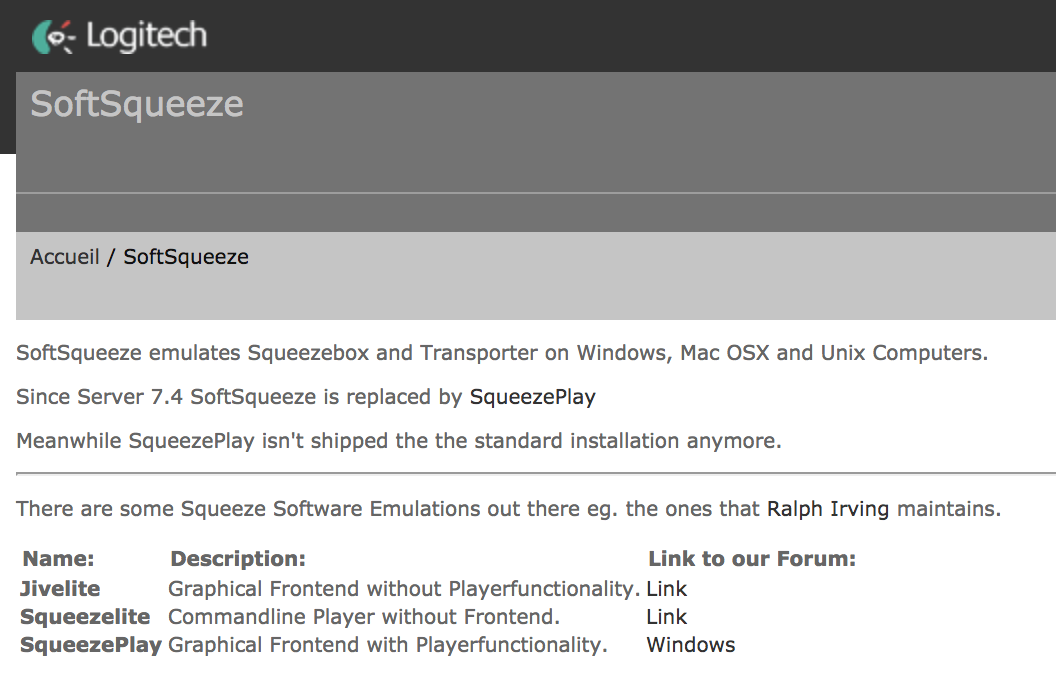 Looking a little deeper on the web app though I found that it was running something called SoftSqueeze - which is actually an emulator for the Squeezebox firmware to run on any kind of common consumer level computer.
Looking a little deeper on the web app though I found that it was running something called SoftSqueeze - which is actually an emulator for the Squeezebox firmware to run on any kind of common consumer level computer.
I decided to do an nmap to get a feel for what else is going on.
➜ ~ nmap -p- 82.64.23.201
Starting Nmap 7.70 ( https://nmap.org ) at 2019-02-06 01:26 EST
Nmap scan report for sub-82-64-23-201.proxad.net (82.64.23.201)
Host is up (0.19s latency).
Not shown: 65517 filtered ports
PORT STATE SERVICE
80/tcp open http
443/tcp open https
554/tcp open rtsp
1935/tcp open rtmp
3483/tcp open slim-devices
8000/tcp open http-alt
8080/tcp open http-proxy
8125/tcp open unknown
8210/tcp open unknown
8215/tcp open unknown
8220/tcp open unknown
8221/tcp closed unknown
8222/tcp closed unknown
8224/tcp open unknown
9000/tcp open cslistener
15567/tcp open unknown
20040/tcp open unknown
25320/tcp open unknown
Nmap done: 1 IP address (1 host up) scanned in 449.77 seconds
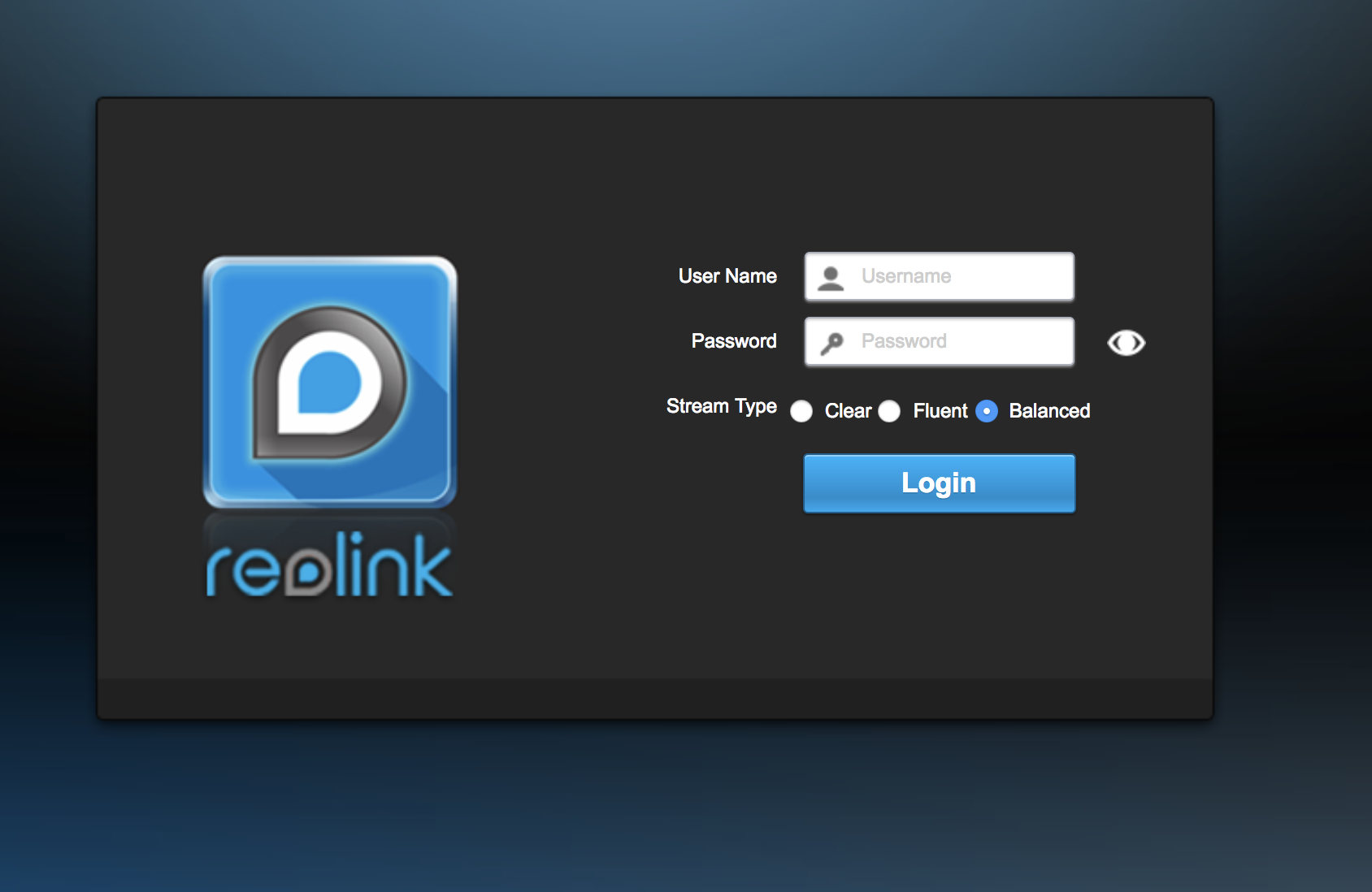 The 80/443 webservers were running a login for something called Reolink, which seems to be some kind of home surveillance/ip camera system. Port 554 was running a real time streaming application, which I thought was maybe the surveillance cams, but I couldn’t login to it (though I did confirm that it was streaming video). The port 1935 was another media stream. 8000 was some kind of SOAP service (we’ll get back to 3483 in a second).
The 80/443 webservers were running a login for something called Reolink, which seems to be some kind of home surveillance/ip camera system. Port 554 was running a real time streaming application, which I thought was maybe the surveillance cams, but I couldn’t login to it (though I did confirm that it was streaming video). The port 1935 was another media stream. 8000 was some kind of SOAP service (we’ll get back to 3483 in a second).
 8080 was running a login for Rancher, which is a service for running multiple clusters of Kubernetes containers. At some point I want to spend a day diving into containers, but today is not that day. Suffice it to say that this raised a lot of questions for me that I was unable to answer.
8080 was running a login for Rancher, which is a service for running multiple clusters of Kubernetes containers. At some point I want to spend a day diving into containers, but today is not that day. Suffice it to say that this raised a lot of questions for me that I was unable to answer.
All the other ports were impenetrable. Back to 3848, I read on the guide to setting up port forwarding for you Squeezebox that you would need to forward both ports 3848 and 9000 because the Squeezebox uses both of them. The IANA port registry that nmap uses says that that port is for ‘slim-devices’, not ‘squeezeboxes’, so I looked it up. It turns out that Slim Devices was the name of the company that first made the Squeezebox way back in 2001, before it was acquired by Logitech in 2006.
Why does IANA still have ports named after companies and services that haven’t been around in over 10 years? See you tomorrow.